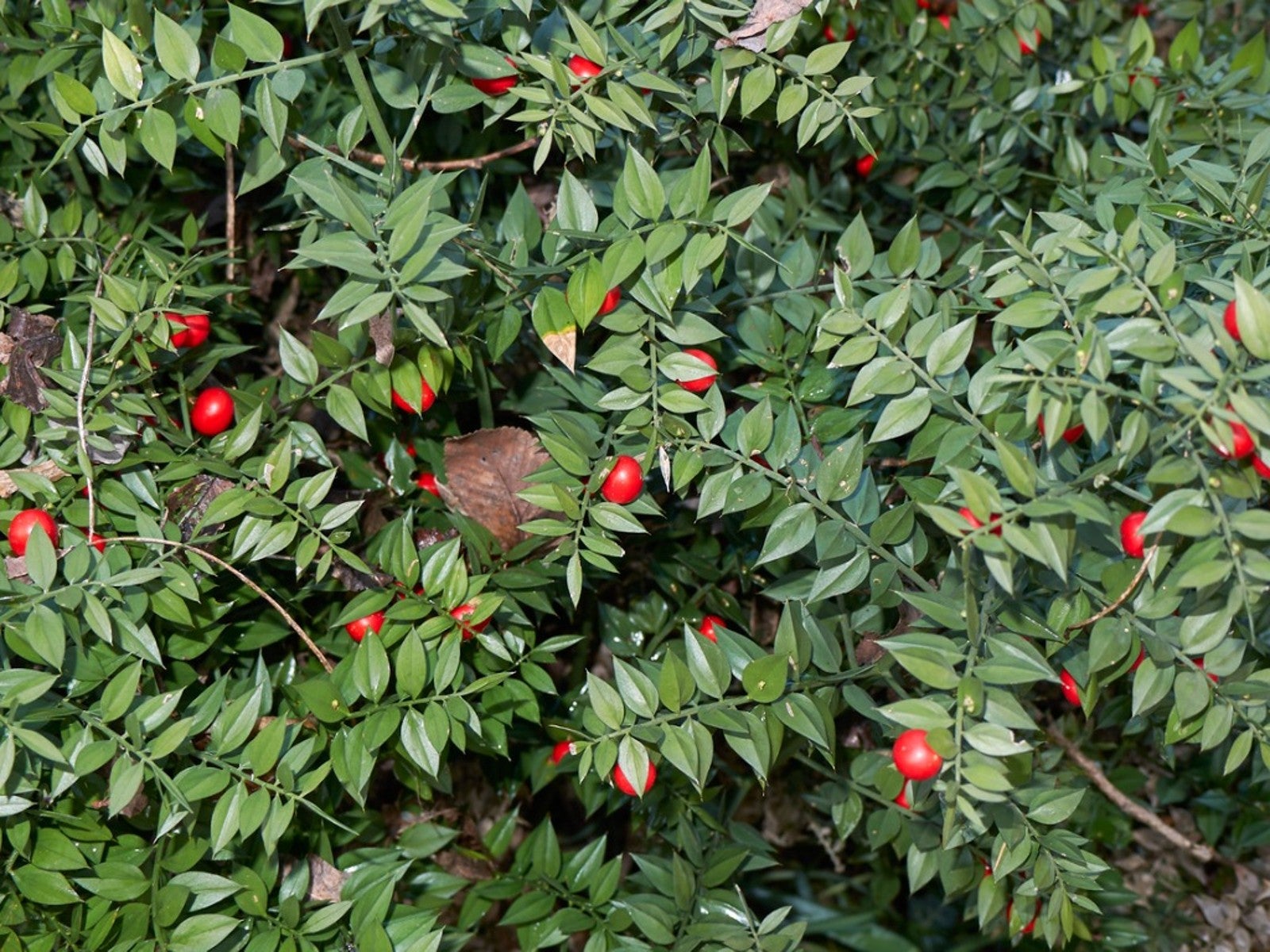Ruscus Plant Info: Learn About Ruscus Varieties For Gardens


What is Ruscus aculeatus, and what is it good for? Ruscus, also known as butcher’s broom, is a shrubby, tough-as-nails evergreen with deep green “leaves” that are actually flattened stems with needle-like points. If you’re looking for a drought-tolerant, shade-loving, deer-resistant plant, Ruscus is a good bet. Read on for more Ruscus plant information.
Ruscus Plant Info
Ruscus is a low-growing, mounding plant, often valued as a groundcover. At maturity, Ruscus reaches heights of 3 feet (1 m.) or less, and a width of about 2 to 4 feet (61 cm. to 1 m.).
In spring, Ruscus displays rather unimpressive greenish white flowers, but on female plants, the blooms are followed by masses of plump, shiny, bright red berries that provide a rich contrast to the shiny, green foliage.
How to Grow Ruscus Plants
Distantly related to the lily, Ruscus thrives in partial or deep shade and nearly any type of well-drained soil. It is suitable for growing in USDA plant hardiness zones 7 through 9.
Once established, Ruscus plant care is minimal. Although Ruscus is drought tolerant, the foliage is richer and more attractive with occasional irrigation, especially during hot weather.
Ruscus Varieties
‘John Redmond’ is a compact plant, valued for its carpet-like growth habit and glossy red berries.
‘Wheeler’s Variety’ is a small, spiny, more erect shrub. Unlike most Ruscus varieties, this slow growing plant is a hermaphrodite plant that requires no pollination partner in order to produce large, red berries.
Gardening tips, videos, info and more delivered right to your inbox!
Sign up for the Gardening Know How newsletter today and receive a free copy of our e-book "How to Grow Delicious Tomatoes".
‘Elizabeth Lawrence’ is another hermaphroditic plant. This compact variety displays thick, upright stems and masses of bright red berries.
‘Christmas Berry’ puts on a dazzling display of bright red berries throughout the winter months. This variety is beautiful but very slow growing.
‘Lanceolatus’ is an attractive variety that produces long, narrow “leaves.”
‘Sparkler’ produces vast numbers of orangey red berries. It is especially effective as a groundcover.

A Credentialed Garden Writer, Mary H. Dyer was with Gardening Know How in the very beginning, publishing articles as early as 2007.
-
 Looking For Plants To Give You The Soft And Fuzzies? Try These 5 Fuzzy Leaf Plant Options
Looking For Plants To Give You The Soft And Fuzzies? Try These 5 Fuzzy Leaf Plant OptionsLovers of texture, drama, silver foliage and tactile plants will adore these special sensory garden additions. These fuzzy leaf plant options will leave you all aglow
By Susan Albert
-
 Get Ready For A Summer Of Hummers! Grow These Full Sun Hummingbird Plants and Flowers
Get Ready For A Summer Of Hummers! Grow These Full Sun Hummingbird Plants and FlowersIf you’re lucky enough to enjoy a sunny backyard, make sure you are maxing out on your pollinator opportunities and grow these full sun hummingbird plants and flowers
By Tonya Barnett